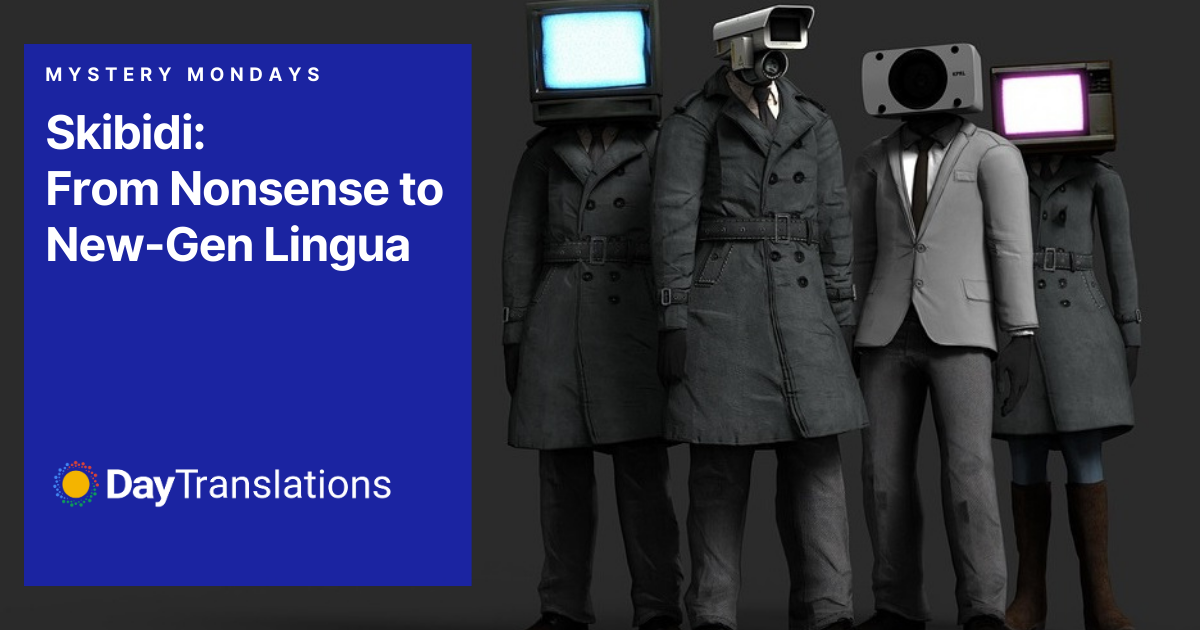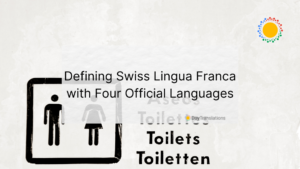You might’ve caught it swirling across TikTok, Twitter, or YouTube memes: skibidi. It’s the kind of word that stops you in your tracks; goofy, catchy, and mysteriously everywhere. But what does it actually mean?
Let’s unravel the story of “skibidi,” a word that’s nothing and everything all at once.
What on Earth Is Skibidi?
According to its new entry in the Cambridge Dictionary in 2025, skibidi is “a versatile slang term with no fixed meaning, often used humorously.” It can mean “cool,” “bad,” or simply serve as a playful filler word. Its beauty lies in its silliness.
It exploded in popularity thanks to the bizarre and absurd Skibidi Toilet YouTube series; mash-ups of dancing toilet heads, surreal audio loops, and laugh-til-you-cry randomness. Before we knew it, the buzzword leaped from meme culture into everyday digital slang.
Where Did It Actually Come From?
Skibidi didn’t sprout from tradition or etymology. It sprouted from chaos. Born from internet irreverence, it nails generational humor; post-ironic, self-aware, and deeply, gleefully silly.
A viral dance or catchphrase often evolves from a place of pure nonsense. Think of “supercalifragilistic…” or “bazinga.” Skibidi fits in that lineage. But what makes it stickier?
- Catchy sound: “ski-BEE-dee” is rhythmic and memorable; easy to say, harder to forget.
- Blank canvas: Because it has no strict meaning, it fills emotional or humorous gaps. Great for when language falls short.
- Meme potential: The looser the word, the more memeable. Pair it with dancing alien, and you’re gold.
It’s Now in the Dictionary. Seriously
In a bold move, the Cambridge Dictionary added skibidi in 2025, alongside other internet-born slang like delulu (short for “delusional”) and tradwife. Lexicographers judged it to have staying power, recognizing that internet culture now shapes global language.
The addition sparked debate: some critics mourned a perceived erosion of English, while others celebrated language fluidity and cultural evolution.
Why Skibidi Still Feels Skibidi-ish
Let’s break down the appeal:
- Universality: Because the word has no fixed meaning, anyone can apply it. You can say, “That hoodie’s skibidi” or “I’m feeling so skibidi today,” and it works.
- Ambiguity is fun: In a world of over-explanation, a nonsensical word offers emotional ambiguity, and that’s refreshing.
- Cultural rebel: Using the word feels like a wink; “I get the joke, I vibe with the weird.” A linguistic badge of insider culture.
A Mini Evolution Lesson
The rise of skibidi is a perfect example of how language evolves in the digital age:
- Someone creates a catchy, nonsensical phrase in a meme.
- Communities rally around it, TikTok dances, remixes, jokes.
- It slips into everyday slang as a mood tool.
- A dictionary picks it up, not because it’s been around forever, but because it reflects how people speak right now.
What It Tells Us About Language Today
Skibidi embodies how we’re rethinking language:
- Intention matters more than meaning: In many cases, how something feels trumps literal definition.
- Language is a collaborative art: This trending word wasn’t invented by a linguist. It spread through communal weirdness.
- Digital is the new dialect: Platforms like TikTok are modern language labs, and skibidi is one of their experiments gone global.
Final Thoughts
Next time you hear someone drop skibidi, know it’s more than a meme, it’s a living placeholder for energy, sarcasm, or just straight-up nonsense.
After all, language may be our tool, but words like the one we just explored show that sometimes the fun matters just as much as the meaning.












Sorry, the comment form is closed at this time.